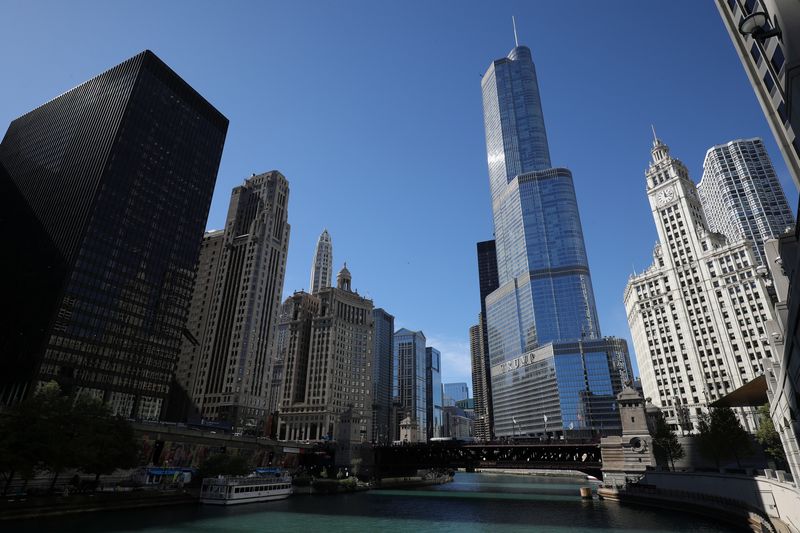Chicagoans vote on real estate tax hike to fight homelessness

The skyline is seen in Chicago, Illinois, U.S., October 19, 2017. REUTERS/John Gress/File Photo
By Eric Cox
CHICAGO (Reuters) – Chicagoans will vote in Tuesday’s primary election on whether to increase the tax rate on real estate transfers worth over $1 million in order to raise funds for affordable housing and fighting homelessness.
The ballot measure would lower property transfer taxes for the vast majority of Chicago residents, to $3 for every $500 of a transfer price under $1 million, down from the current flat rate of $3.75.
But it would create new brackets at the priciest end of the city’s property market, including many office buildings filling the Chicago skyline, with a tax rate of $10 for every $500 of the transfer price between $1 million and $1.5 million, and $15 beyond that.
Proponents of the “Bring Chicago Home” measure in the City Council, led by Democrats, estimate that the changes would bring in an additional $100 million each year, which would be earmarked for services to address homelessness.
The new tax structure would bring Chicago into line with San Francisco, Philadelphia and other major U.S. cities, according to Carlos Ramirez Rose, the alderman who represents Chicago’s 35th ward.
“This is not a big scary change,” he said. “A lot of the fear-mongering and misinformation have been coming from some of the richest entities in the world.”
About 93% of all home purchases in Chicago are for under $1 million and would see a lower tax bill, the council said.
Some landlords and managers of more expensive properties oppose the measure. The Building Owners and Managers Association of Chicago says it would hinder efforts to revitalize office towers downtown, which have struggled to keep tenants in the wake of the COVID-19 pandemic.
As in other American cities, many non-wealthy Chicago residents must contend with rising rents and home prices. Illinois law requires that the council put any property tax changes to voters before they can be enacted.
More than 68,000 Chicagoans were without permanent housing at some point in 2021, the latest year for which data was available, according to a recent report by the Chicago Coalition for the Homeless, which has advocated in favor of the tax change.








